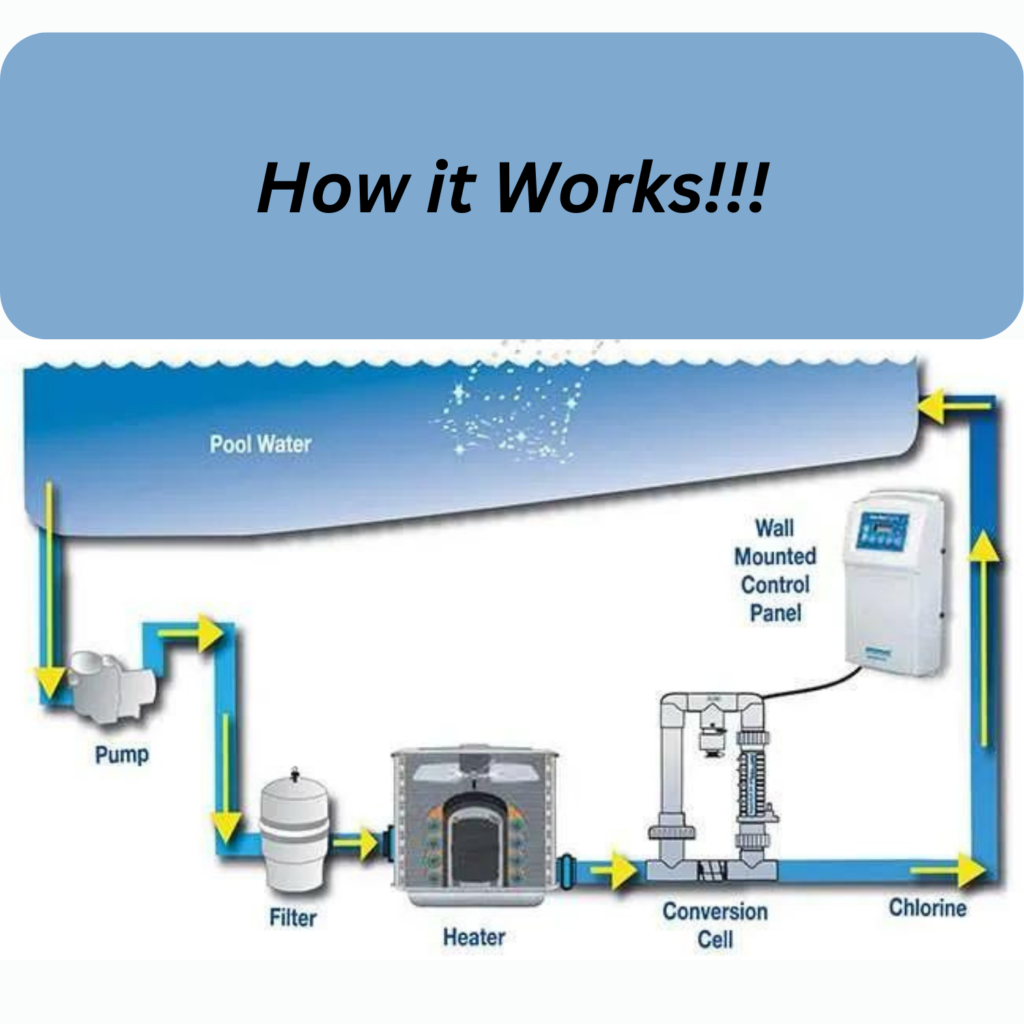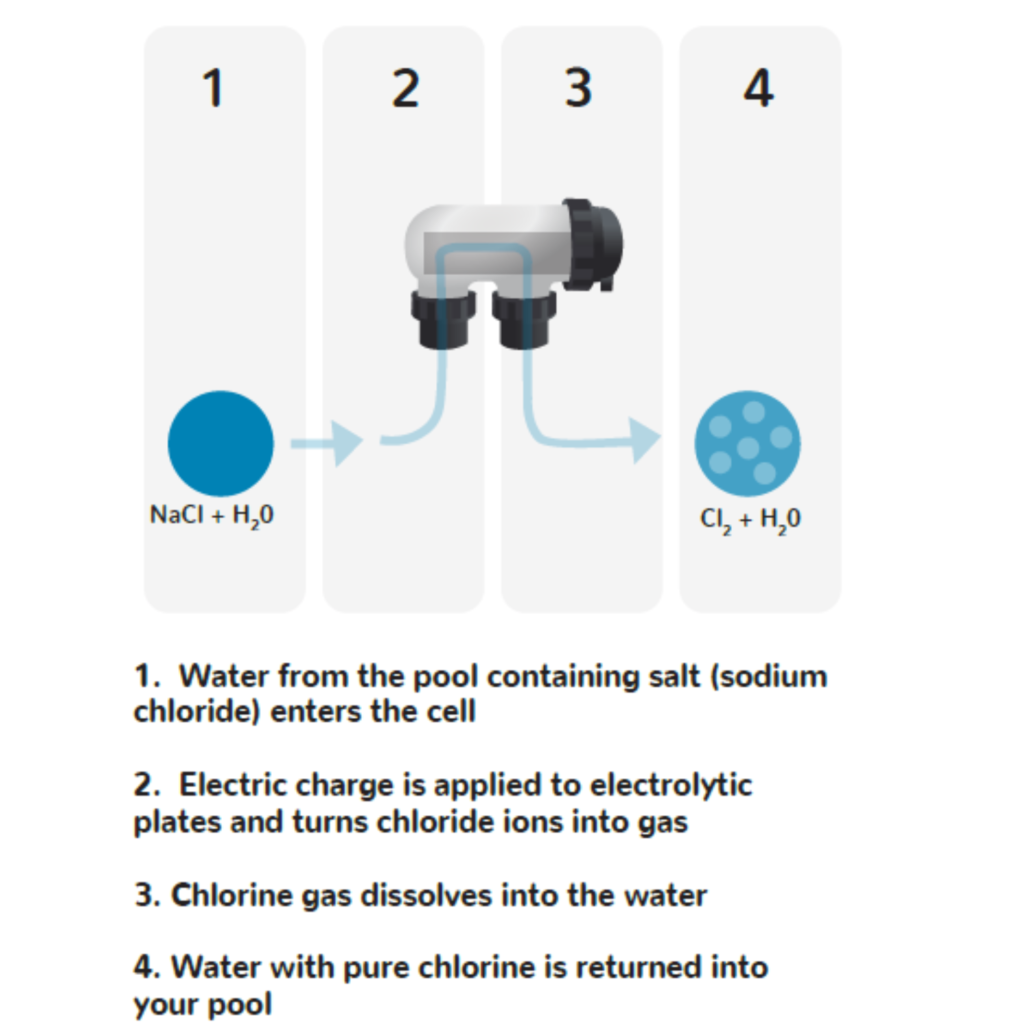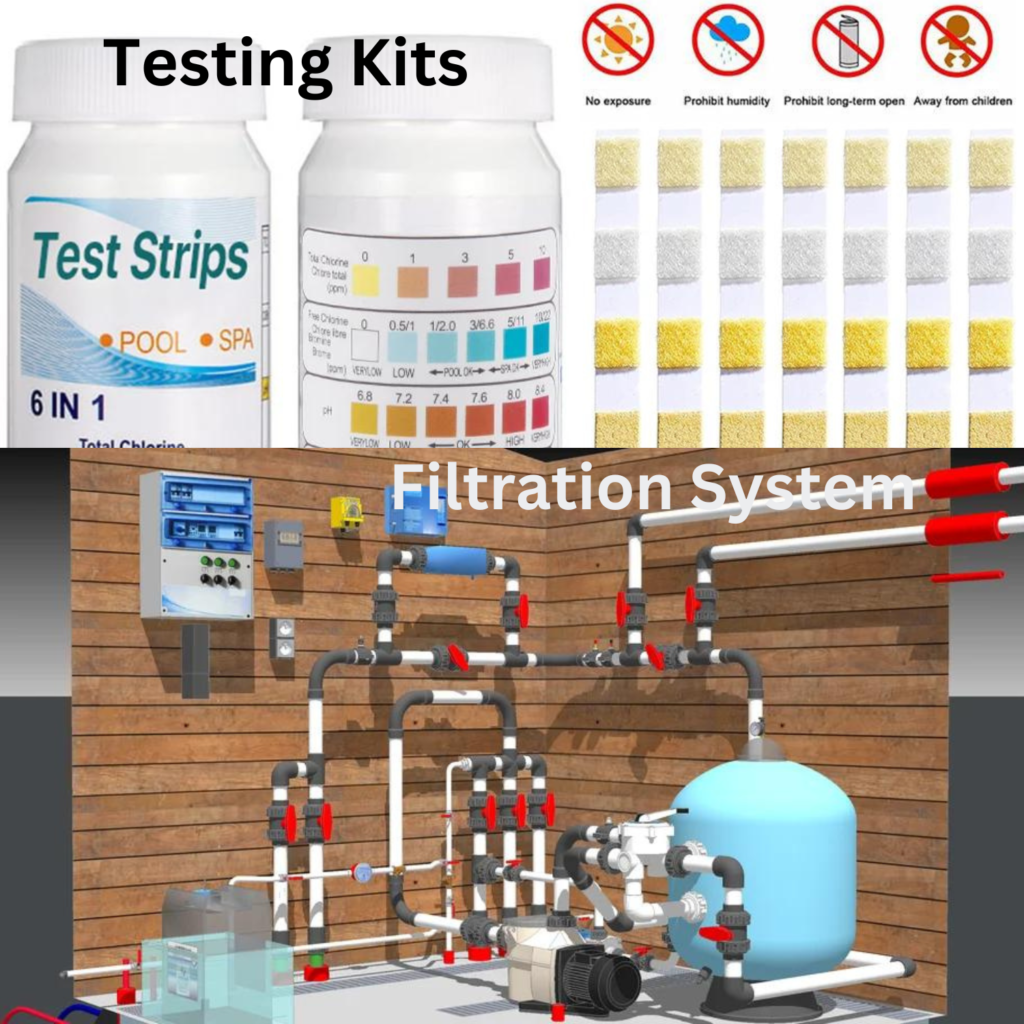Dive into Sustainability:
A Refreshing Approach to Saltwater Pool Maintenance.
How to maintain salt water pool: Understanding the Basics of Saltwater Pools
- What is a Saltwater Pool?
- How Does a Saltwater System Work?
- Benefits of Saltwater Pools Over Traditional Chlorine Pools
Essential Equipment for Saltwater Pool Maintenance
- Saltwater Generator
- Filtration System
- Testing Kits
Balancing Chemical Levels
- Importance of pH Balance
- Managing Alkalinity and Calcium Hardness
- Chlorine Levels in Saltwater Pools
Cleaning and Skimming Routine
- Skimming Debris Regularly
- Brushing Walls and Floor
- Vacuuming the Pool
Preventing and Treating Algae Growth
- Understanding Algae Types
- Algae Prevention Methods
- Eco-Friendly Algaecides
Maintaining Saltwater Generator
- Regular Inspections
- Cleaning the Electrolytic Cell
- Troubleshooting Common Issues
Eco-Friendly Practices for Sustainability
- Using Solar Covers to Reduce Evaporation
- Implementing Rainwater Harvesting Systems
- Choosing Environmentally Friendly Pool Products
FAQs: Addressing Common Concerns
- Can I Use Saltwater Pools if I Have Sensitive Skin?
- How Often Should I Test My Pool Water?
- Is it Safe to Swim in a Saltwater Pool?
How to Maintain Salt Water Pool: Embracing Eco-Friendly Pool Maintenance
For knowing how to maintain salt water pool especially in an age where sustainability is critical, it’s time to reconsider how we manage our pools. Saltwater pools are a relaxing alternative to regular chlorine pools, giving crystal clear water without the harsh chemicals. By embracing eco-friendly techniques, you can not only enjoy a cleaner, healthier pool but also help to make the world a greener place.
For deeper understanding, first you need to know about some basics about how to maintain salt water pool. For this please have a look into this video.
Understanding the Basics of Saltwater Pools
Imagine jumping into a pool that feels like the ocean; that is the appeal of a saltwater pool. Unlike chlorine pools, which utilize chemical additions, saltwater pools manufacture chlorine from salt through a natural process known as electrolysis. This means no more red eyes, irritated skin, or pungent chemical odors. It’s like bringing a piece of the ocean into your private paradise.

Essential To Know How Conversion Salt Cell Works

Maintaining Saltwater Generator
As described above the functionality of the cell above, your saltwater generator is the unsung hero of your pool, constantly converting salt into chlorine to keep it clean and safe. Regular checks and cleaning of the electrolytic cell are required to ensure proper operation. With a little TLC, your generator will continue to run for many years.
If you want to know more about how to much salt require for your saltwater pool or trying to master the pH balance then do visit water chemistry calculator.
Essential Equipment for Saltwater Pool Maintenance
Maintaining a saltwater pool, like creating a masterpiece, necessitates the use of specific instruments. The saltwater generator, which uses electrolysis to convert salt into chlorine, serves as the system’s heart. Combined with a dependable filtration system and testing kits, you’ll have everything you need to keep your pool in top condition.

Balancing Chemical Levels
Consider the chemical balance of your pool as a delicate dance; if you have too much or too little, the balance will be off. The proper pH balance must be maintained for swimmer comfort and water clarity. Alkalinity, calcium hardness, and chlorine levels can all be controlled to create the ideal aquatic environment for limitless enjoyment.

Cleaning and Skimming Routine
Just like you sweep your floors and dust your shelves, your pool need regular care. Keeping the pool sparkling clean requires skimming debris, brushing the walls and flooring, and vacuuming it. With a little work, you can change your pool into a sparkling haven that invites you to plunge straight in.
Preventing and Treating Algae Growth
Algae are a source of concern of pool owners everywhere. But do not worry, since with the appropriate knowledge, you can keep it at away. Understanding the various varieties of algae and taking prevention measures like as appropriate circulation and filtration can help you avoid a green nightmare. And if algae does appear, eco-friendly algaecides provide a gentle yet effective treatment.

Maintaining Saltwater Generator
Your saltwater generator is the unsung hero of your pool, constantly converting salt into chlorine to keep it clean and safe. Regular checks and cleaning of the electrolytic cell are required to ensure proper operation. With a little TLC, your generator will continue to run for many years.
Eco-Friendly Practices for Sustainability
What if we told you that you could care for your pool while still being environmentally responsible? Solar covers not only prevent evaporation, but they also use the sun’s energy to heat your pool – what a win-win! Combine this with rainwater collection systems and eco-friendly pool equipment, and you’ll be swimming guilt-free in no time.
Summary: A Sustainable Approach to Saltwater Pool Maintenance
Maintaining a saltwater pool is about more than simply having crystal clear water; it’s also about embracing sustainability and caring for our world. Understanding the fundamentals, establishing a consistent cleaning schedule, and applying eco-friendly methods can allow you to enjoy a cleaner, greener pool that is as pleasant for you as it is for the environment. So, embrace sustainability and turn your backyard oasis into a truly eco-friendly refuge.
If you are interested to know about then here you go!!!

FAQs: Addressing Common Concerns
Concerned about sensitive skin?
With saltwater pools, you can say goodbye to harsh chemicals and welcome to silky smooth, skin-friendly water.
Regular pool water testing guarantees optimal swimming conditions, and studies demonstrate that swimming in a well-maintained saltwater pool is as safe as swimming in standard chlorine pools.
